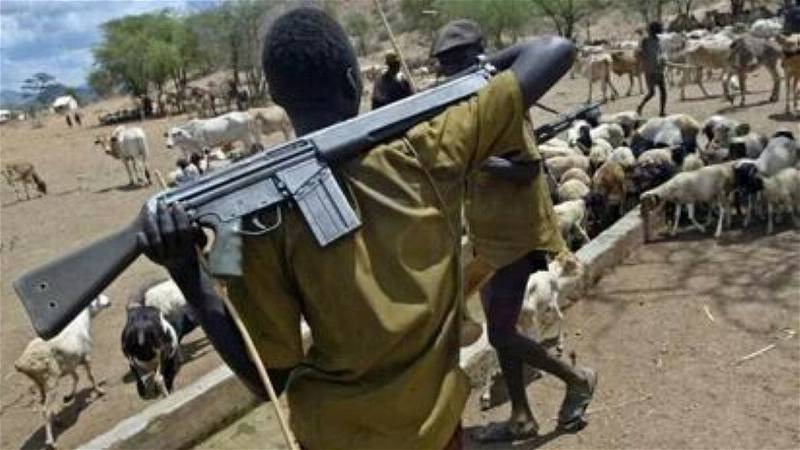Olayomi Koiki

BENUE, Nigeria – At least six people were reportedly killed by gunmen suspected to be armed herders in two communities in the Agatu Local Government Area of Benue State, North-Central Nigeria.
The two attacks occurred on Friday in the Iwari and Olegagbane communities of the local government area.
One person was killed in the Iwari community and five others lost their lives in the Olegagbane community, according to a local, who identified himself as Adayi.
“Some armed invaders attacked the Iwari community on Friday, killed one person and injured several others. The same day, they moved to the Olegagbane community where they killed five people,” PUNCH news quoted Adayi as saying.
The Chairman of the LGA, Phillip Ebenyakwu, confirmed the incidents and expressed concern over incessant attacks in the area.
“It’s true; the incident is confirmed. The attackers came, killed, stole, and looted before they fled the affected communities,” Mr Ebenyakwu said.
“I don’t know their motives, but these attacks are unbearable. I am in communication with security agencies, and they are working on it.”
He added that it was becoming overwhelming and unbearable to manage the over 2,000 persons displaced from various communities affected by armed herders’ invasion.
The local government boss stated that about nine villages had been sacked by invaders.
“The number of displaced people is overwhelming. Though the State Emergency Management Agency provided some relief materials, it’s not sufficient,” he added.
Benue State Police Command’s spokeswoman, Catherine Anene, said she was not aware of the incident.
– Insecurity and violence in Nigeria –
For more than a decade, civilians in Nigeria have faced multiple security threats and risk of atrocities as result of attacks, kidnappings and extortion by various non-state armed groups.
Since the start of 2024 civilians have faced intensified violence across Nigeria, and near-daily attacks by armed groups resulting in kidnappings and other abuses against civilians.
Armed groups and gangs, including so-called “bandits,” have – for many years – perpetrated widespread atrocities, including murder, rape, kidnapping, organized cattle-rustling and plunder. Armed herdsmen are also destroying vast swaths of farmland, prompting many farmers to abandon their land out of fear of attack.
The conflict between Fulani herdsmen and farmers in Nigeria has been a longstanding issue, resulting in violence and loss of lives.
The Fulani people are believed to be the largest semi-nomadic group globally, found across West and Central Africa. In Nigeria, some continue to live as semi-nomadic herders, while others have moved to cities. Unlike city dwellers, the nomadic groups spend most of their lives in the bush and are often involved in clashes with farming communities, and also engage in kidnapping for ransom. They herd their animals across vast areas, frequently clashing with local farmers.
The herders now bear sophisticated weapons and use them to terrorize many parts of the country, with security operatives ignoring many of the attacks for allegedly not getting orders to go after the criminals.
Several brutal attacks happened under former President Muhammadu Buhari, who was born to a Fulani family on 17 December 1942, in Daura, a town in Katsina State, Nigeria.
The continuous unprovoked attacks triggered resistance in South-East region, inhabited by Igbo people and South-West region, inhabited by the Yoruba people.
A Yoruba activist and philanthropist, Chief Dr Sunday Adeyemo, aka Sunday Igboho, demanded end to the attacks that have cost lives of thousands. He asked the Fulani people to vacate all the forests in South-West.
He is currently agitating for the freedom of the South West.
As the Akoni Oodua of Yorubaland, he is known for fighting for the rights of the Yorubas and advocating for the Oduduwa republic.
